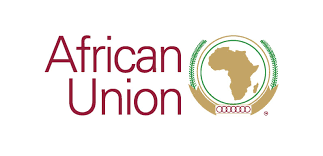Can the AU help Africa’s private sector survive COVID-19?

As the COVID-19 pandemic continues to rage unabated, Africa seems set for a major economic crisis owing to the restrictive measures to combat COVID-19, the fall in commodity prices, the disruption in global supply chains, and restrictions on international travel.
The African Union (AU) has drawn up a range of scenarios on the impact of COVID-19 on African economies. While key sectors (oil and gas, tourism, transport) are already severely affected, the slowdown in the informal sector will compound unemployment rates. With the informal sector the largest source of employment for many on the continent, the socio-economic impact of this is likely to be devastating.
Literature study – European development cooperation with Sub-Saharan Africa

ECDPM, jointly with the German Development Institute (DIE), conducted a study on EU cooperation with Sub-Saharan Africa for the evaluation department (IOB) of the Ministry of Foreign Affairs of the Netherlands.
The review analyses EU policies, aid spending and results achieved by EU development cooperation with Sub-Saharan Africa between 2013 and 2018.
The research is based on existing sources of material (EU policy documents, reports, EU evaluations, scientific and other literature). It gives a picture of:
- European development policy as it has developed in recent years.
- The expenses associated with that policy and where the money has gone to.
- What we know about the results achieved, particularly in the areas of peace and security, private sector development, agriculture and social development.
Africa Regional Integration Index 2019

The second edition of the Africa Regional Integration Index (ARII) is a joint publication of the African Union Commission (AUC), the African Development Bank (AfDB), and the United Nations Economic Commission for Africa (ECA) .
The African Union Commission, the United Nations Economic Commission for Africa and the African Development Bank are proud to present the second edition of the Africa Regional Integration Index . The timing could not be better with the recent endorsement of the African Continental Free Trade Area (AfCFTA) by more than 50 African countries . AfCFTA creates the largest free trade zone in the world, with a combined GDP of over USD 3 .3 trillion and a population of more than 1 .2 billion people . Breaking down tariff barriers alone will spur trade by at least 53% while the elimination of non-tariff barriers could double intra-African trade .
Africa’s economic growth is projected to exceed 4% in 2019-2020, an increase from 3 .5% in 2018 . Spurred by AfCFTA, more than 40% of African countries are projected to post growth of at least 5% this year as commodity prices rise and domestic demand and infrastructure investments boost growth.
Re-discovering EurAfrica (Policy Brief)

Every year, on the 9th of May, the European Union celebrates the "Europe Day". On that day, seventy years ago, the French Foreign Minister Robert Schumann, presented his plan for political cooperation in Europe. The so-called Schumann Declaration is considered to be the founding text of European integration. Schumann, as all of Europe's founding fathers - including Jean Monnet, Guy Mollet, Paul-Henri Spaak, Konrad Adenauer and Alcide de Gaspari, was acutely conscious that Europe's best hope of becoming an independent power in a bipolar world was to increase its landmass, population and material wealth. Together with all these great politicians he was a passionate advocate of the idea of "Eurafrica".
Mobilising E-Commerce for Development in Africa through AfCFTA

Since the dawn of the 21st century, internet, Information and Communication Technologies (ICTs) and digital applications have been infiltrating every aspect of human lives and reshaping social and economic activities and it has become evident that theworld is racing to a “digital economy” era. There is no universally agreed definition of “digital economy”. Early attempts confined it to ICT and high-tech sectors in the developed economies. But as ICT continues to generate widespread transformations across other sectors, creating new business models and structures that increasingly involve the developing world, the digital economy is now perceived as encompassing the whole economy with no geographical limits (Ismail, 2020; Cooper, 2017).
Africa-Europe Cooperation: Using the Opportunities for Reorientation

The European Union's relations with the African continent face particular challenges. Unexpectedly, the negotiations between the partners are now being put through a special rehearsal. The global spread of COVID-19 has led to economic crises in Europe, China and the USA, as well as on the African continent. This economic crisis also affects the EU's external trade relations with Africa. The EU-African Union Summit, scheduled for October 2020, will be overshadowed by the global coronavirus crisis. Both EU and African institutions consider the economic and health crisis to be more serious than the 2008/2009 financial crisis. The consequences of the crisis for the African continent are so far-reaching that cooperation between Africa and the EU must also be readjusted.
Going the Extra Mile for the 2020 Elections in the Central African Republic

The upcoming 2020 presidential election in the Central African Republic (CAR) has the potential to derail the implementation of the 2019 Khartoum Peace Agreement and bring about a return to widespread conflict. This calls for immediate and collaborative action to be taken by those national, regional, and international actors working for peace in the country. This policy brief aims to outline some of the key risks posed by the upcoming elections and provide recommendations to mitigate their potential to negatively impact on ongoing peace and reconciliation efforts.
OECD - Foreign direct investment flows in the time of COVID-19

FDI flows are expected to fall by more than 30% in 2020 even under the most optimistic scenario for the success ofthe public health and economic support policy measures taken by governments to address the COVID-19 pandemic and the resulting recession.FDI flows to developing countries are expected to drop even more because sectors that have been severely impacted by the pandemic, including the primary and manufacturing sectors, account for a larger share of their FDI than in developed economies.FDI could play an important role in supporting economies during and after the crisis through financial support to their affiliates, assisting governments in addressing the pandemic, and through linkages with local firms. FDI flows have steadily declined over the past five years, and they could remain below pre-crisis levels throughout 2021 if the public health measures and economic support policies are not effective.
OECD - Developing countries and development co-operation: What is at stake?

OECD - COVID-19 in Africa: Regional socio-economic implications and policy priorities





